The 3.5 trillion fish in our oceans are in crisis. Overfishing and warming waters are responsible for 70 percent of the world’s fish stocks being fully used or overused, according to the UN Food and Agriculture Organization.
However, a new coalition, Future Ocean Foods (FOF), recently formed to help take pressure off of our fragile aquatic ecosystems by promoting sustainable, plant-based alternatives to seafood.
Composed of 36 vegan companies, the coalition is setting its sights squarely on the global seafood market, which is currently valued at an estimated $330 billion. Spearheaded by Marissa Bronfman, the association’s founder and executive director, FOF aims to tap into the burgeoning alternative seafood market by offering sustainable and innovative plant-based options.
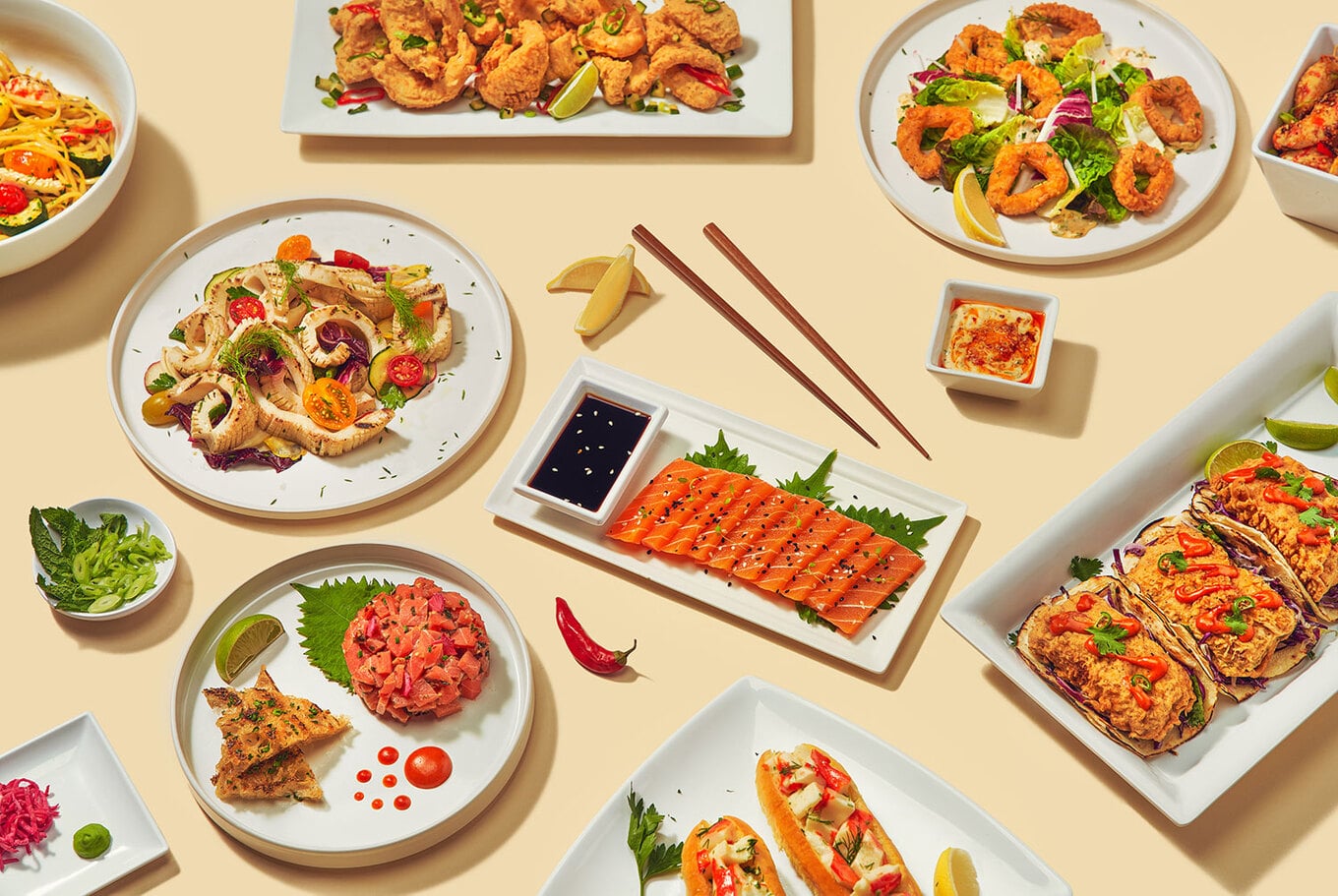 Boldly
Boldly
Investment in alternative seafood has seen a staggering 92 percent increase from 2021 to 2022, while United States retail sales grew 42 percent during that period.
“I am so excited about the growth potential for alternative seafood,” Bronfman tells VegNews. “Unlike terrestrial meat, there are dozens of different seafood species to develop, allowing many more companies to commercialize and gain market share.”
Catching the vegan seafood market wave
The timing for a coalition like FOF is critical, given the environmental and demographic challenges we face. More than 3 billion people rely on seafood as their primary protein source, and with the world’s population expected to reach 10 billion by 2050, the need for sustainable seafood alternatives is more urgent than ever. “We have a climate catastrophe and exponential population growth,” Bronfman says. “We need sustainably scalable seafood alternatives urgently.”
Seafood is a dietary staple in many cultures around the world—underscoring the vast potential of plant-based alternatives in this sector. Here, FOF’s advantage is that it is composed of companies from 14 countries, creating a diverse and dynamic force in the alternative protein market.
“In many places around the world, seafood plays a much larger role and takes up a bigger piece of the plate,” Bronfman explains.
This diversity in seafood types presents an opportunity for innovation and market expansion. This diversity is not just geographical; 40 percent of the member companies are led by women founders, and the coalition encompasses both B2B and B2C companies across various stages of development working on plant-based, cell-cultivated, and precision fermentation solutions to more sustainable seafood.
“This is what the future of our food system has to look like in order to be ethically efficient and sustainably scalable: diverse,” Bronfman says. “Our unique membership allows us to have a truly global view on alternative protein and alternative seafood, while also having incredibly deep insights and learnings from specific countries and markets.”
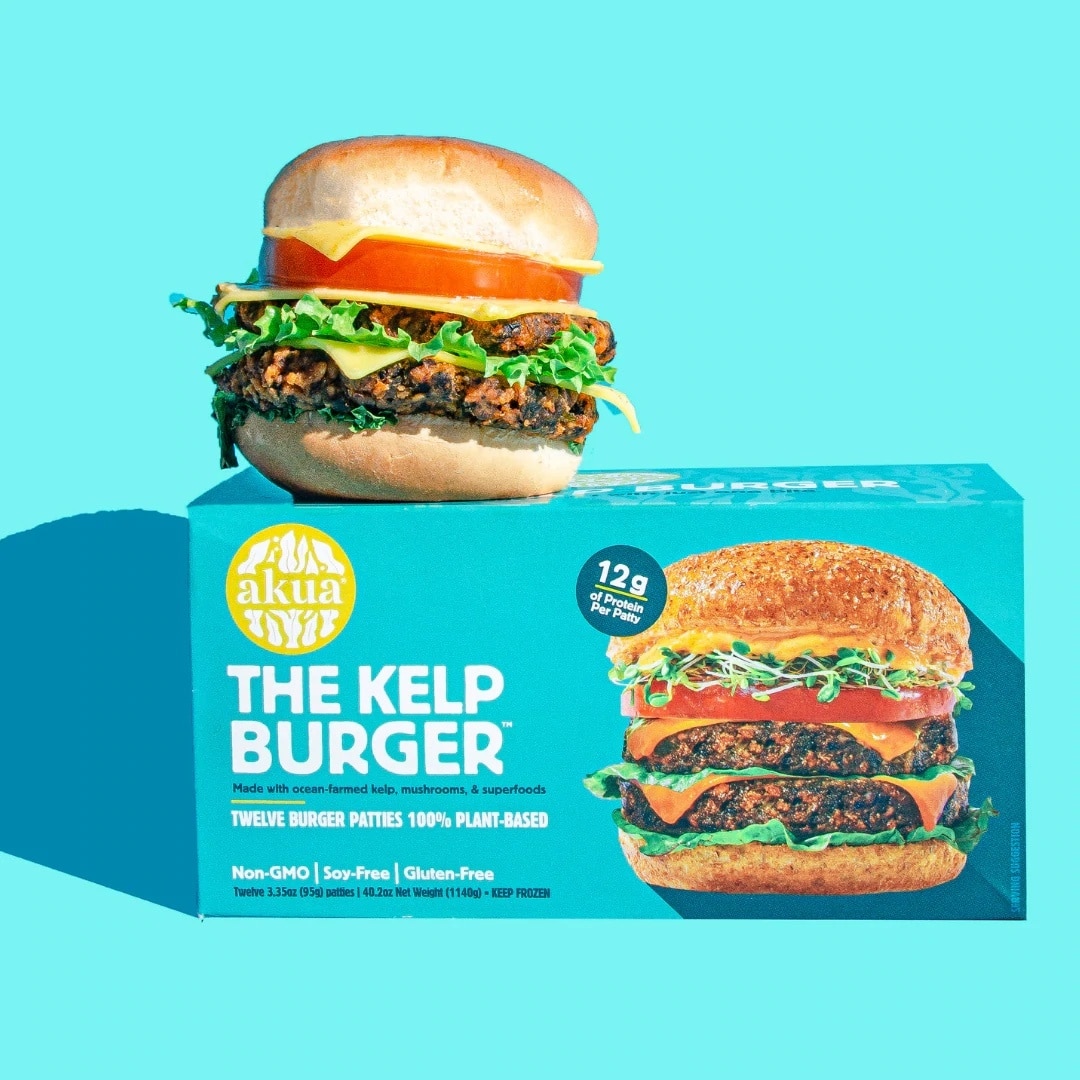 Akua
Akua
Bronfman is particularly excited about the potential of microalgae and seaweed in the industry. “Many people choose to eat fish because of the omega content, however, fish do not produce their own omegas, they obtain them from eating microalgae,” she says. This understanding opens up innovative pathways to create products that are not only sustainable but also nutritionally beneficial.
FOF’s member companies represent a broad spectrum of the industry—from Akua in the US to Avant Meats in Singapore and Revo Foods in Austria, FOF members create everything from whole-cut fish to sushi, all without harming the oceans.
For instance, Good Catch Foods (a subsidiary of of FOF member Wicked Kitchen) uses legumes to mimic shredded tuna while Boldly creates a broad range of vegan seafood—from salmon to calamari rings to jumbo prawns, and more—using Japanese root vegetable konjac.
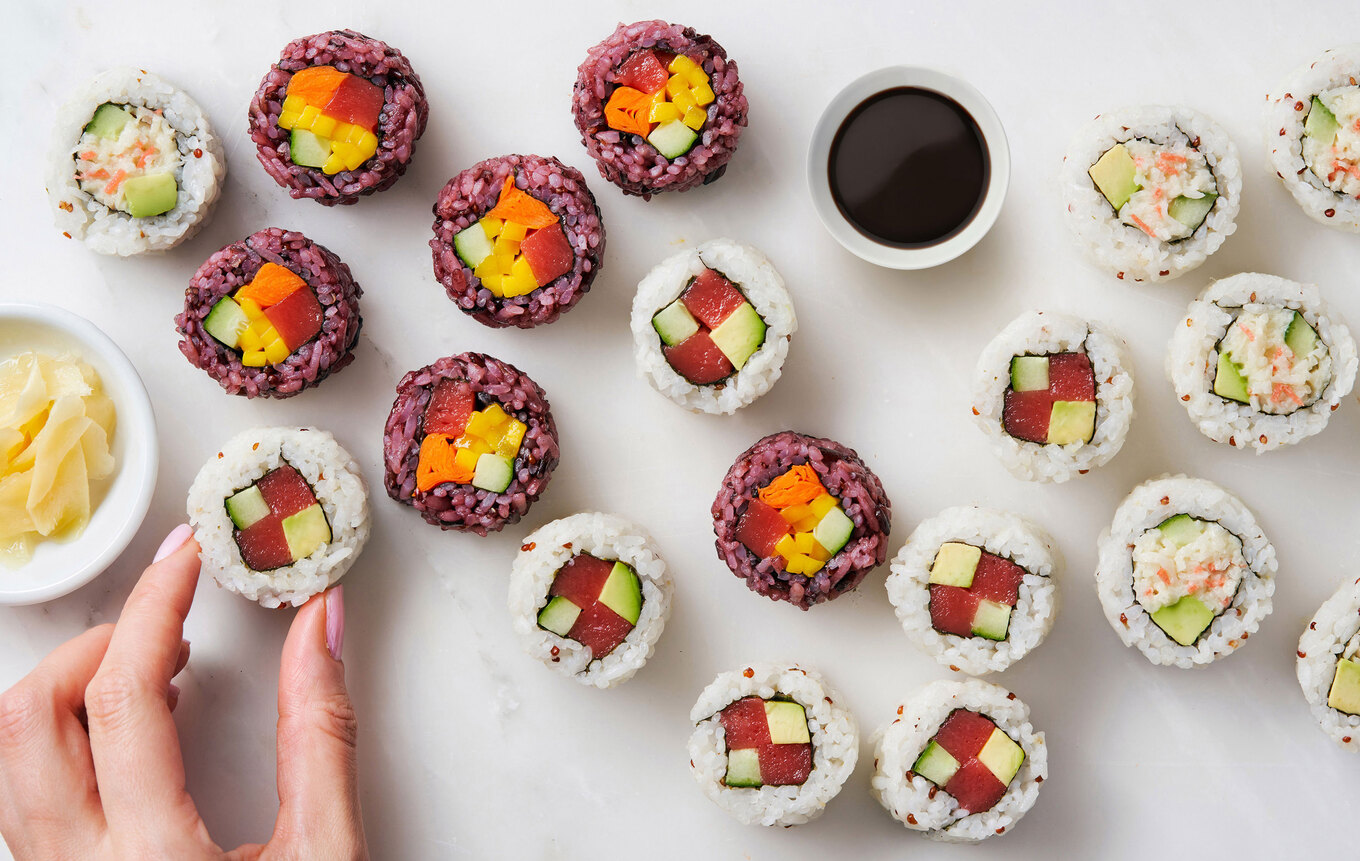 Konscious Foods
Konscious Foods
Meanwhile, FOF member Konscious Foods is disrupting the sushi industry with its frozen line of vegan sushi. Founded by Yves Potvin (the visionary behind vegan company Gardein Foods), Konscious recently landed its vegan seafood inside the sushi counter at Whole Foods Markets across the US. And then there’s Oshi, a company dedicated to perfecting the salmon filet without harming fish.
Saving seafood for the next generation
The association’s formation comes at a time when the world is grappling with a climate crisis and significant threats to ocean health. The global seafood industry, projected to surpass $700 billion by 2030, faces the daunting challenge of meeting increasing demand while dealing with the potential collapse of global fisheries by 2048 due to human-led destruction and climate change.
FOF’s strategy involves not just the development of alternative seafood products but also a comprehensive approach to sustainability. The association is working to unite global stakeholders for knowledge-sharing and collaboration, increase education and awareness of the benefits of alternative seafood for human health and environmental sustainability, and enhance the nutritional profile of alternative seafood.
 Boldly
Boldly
The global partnerships that FOF has forged are crucial to its mission. Collaborating with organizations such as The Good Food Institute, ProVeg International, and the Global Organization for EPA & DHA Omega-3s, FOF aims to transform the global food system by bringing together expertise and resources necessary to drive innovation and market penetration in alternative seafood.
“Though we all have different backgrounds, we are united in our mission to write a new story for seafood,” Bronfman says.
For the latest vegan news, read:
JUMP TO ... Latest News | Recipes | Guides | Health | Shop



 (1).jpg?sha=bb1b215e653eb563)
.jpg?sha=c9c318afd5cc8a42)
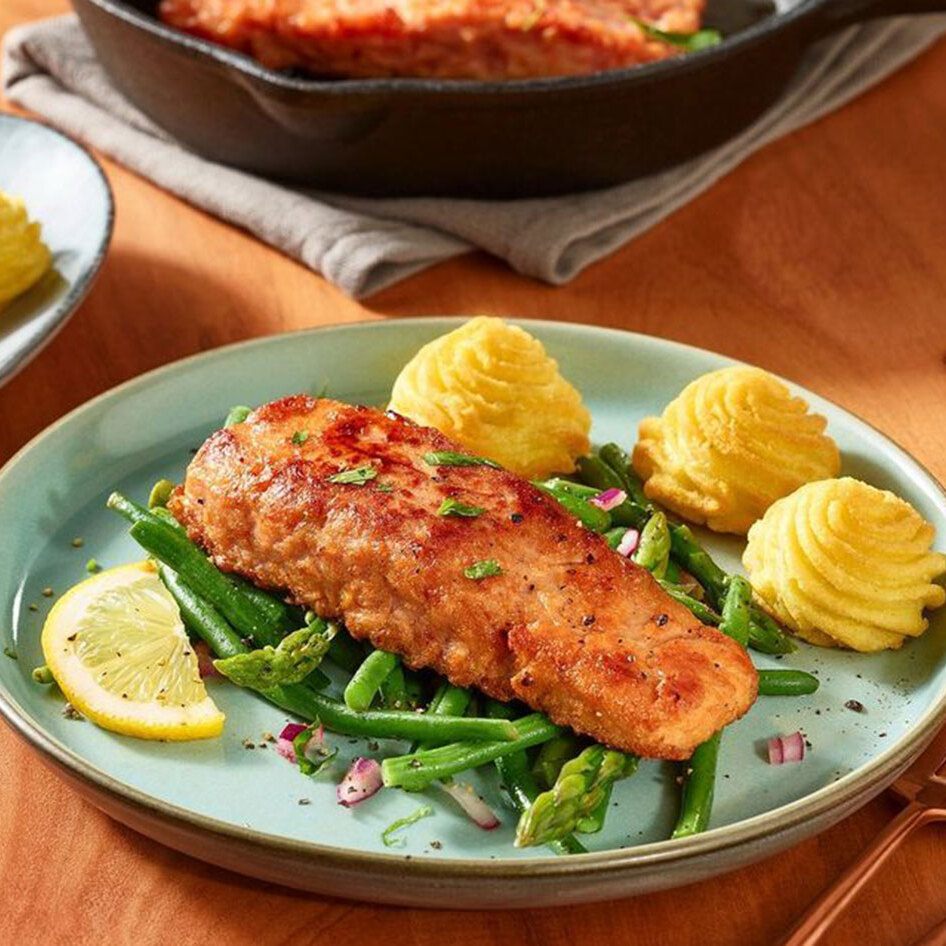
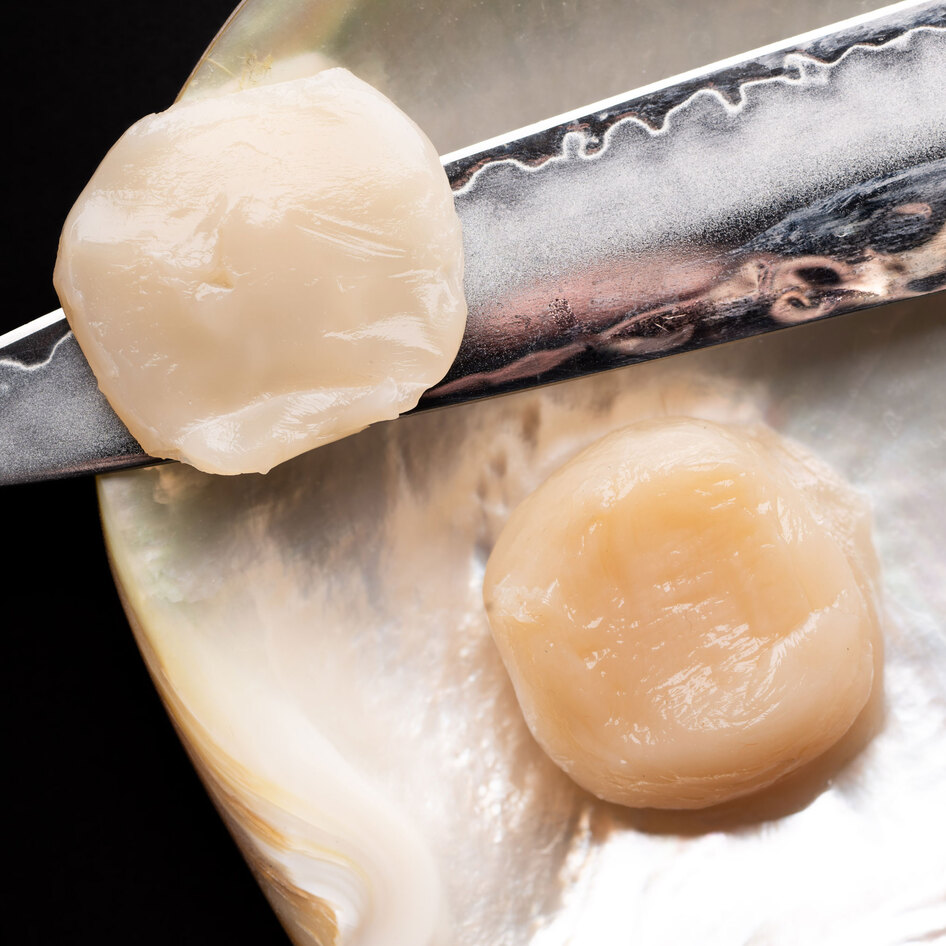
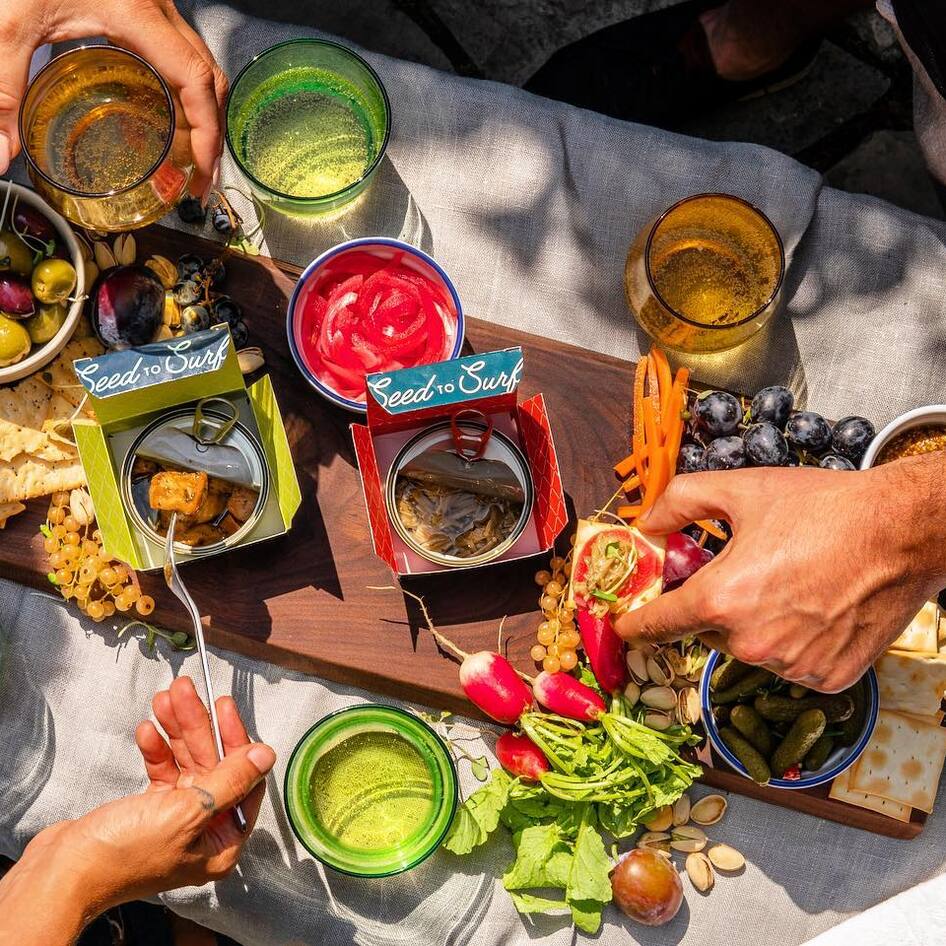
 (1).jpg?sha=0808561373c5b20e)
